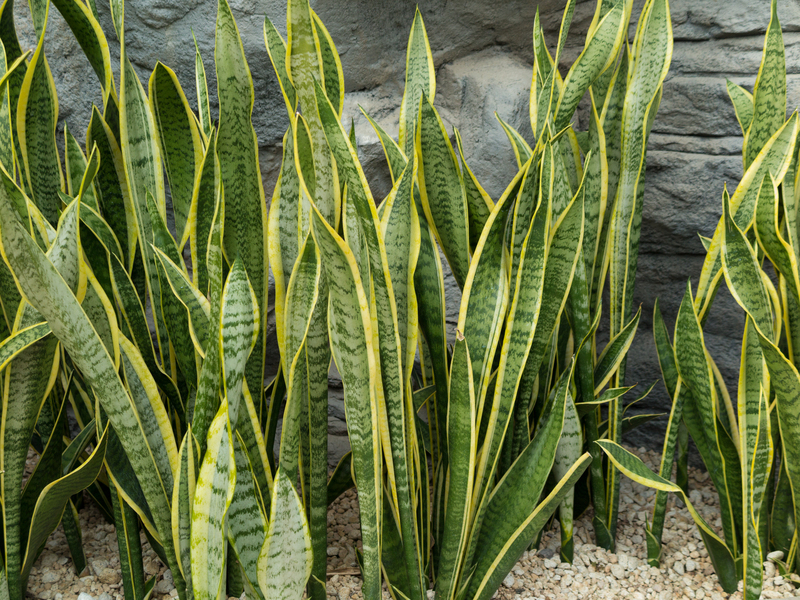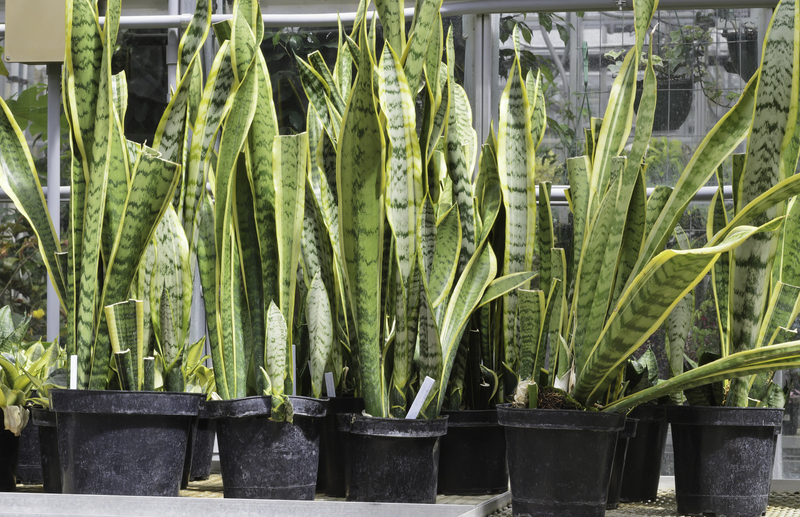Crucial Garden Tools Every Enthusiast Should Have
Posted on 11/09/2025
Crucial Garden Tools Every Enthusiast Should Have
Gardening is a fulfilling and rewarding hobby that connects you with nature while beautifying your outdoor space. However, to ensure a thriving and blooming garden, you need more than passion--you need the right garden tools. Whether you're a budding beginner or a seasoned green thumb, understanding which instruments make up the arsenal of crucial garden tools is vital for cultivating, maintaining, and enjoying your garden to the fullest.
Why Having the Essential Gardening Tools Matters
Having the best essential garden tools on hand can mean the difference between a struggling plot and a flourishing landscape. Not only do proper tools streamline tasks such as planting, weeding, pruning, and watering, but they also protect you from injury and fatigue. Investing in quality gardening equipment ensures longevity, helping you save time and effort while achieving remarkable results.
What Makes a Tool 'Essential' in the Garden?
An essential garden tool is one that you'll reach for repeatedly, regardless of the type of plants or size of your garden. These implements provide versatility, efficiency, and comfort. Choosing the best tools requires a balance between practicality, durability, and ease of use.

Top Crucial Garden Tools for Every Gardener
Every gardening enthusiast, regardless of experience, should have a selection of the following crucial gardening tools:
- Quality Hand Trowel
- Sturdy Pruning Shears
- Reliable Garden Fork
- Versatile Spade or Shovel
- Easy-to-Use Watering Can
- Flexible Garden Hose
- Useful Garden Gloves
- Essential Rake
- Hand Weeder
- Garden Hoe
The Hand Trowel: A Gardener's Best Friend
The hand trowel is perhaps the most versatile and crucial gardening tool. This compact device is perfect for digging holes, transplanting seedlings, mixing in fertilizers, and removing weeds. Look for a trowel with an ergonomic grip and a sturdy, rust-resistant blade for durability.
- Ideal for: Planting bulbs and herbs, small digs, precision work
- Tips for choosing: Opt for stainless steel blades and contoured handles for comfort and longevity.
Pruning Shears: For Clean, Healthy Cuts
Pruning shears (also known as secateurs) are indispensable for maintaining plant health. These handheld cutters trim branches, deadhead willows, and harvest flowers or vegetables. Sharp, high-quality blades avoid crushing plant tissue, reducing the risk of disease.
- Ideal for: Cutting stems, pruning roses, shaping shrubs
- Variants: Bypass, anvil, and ratchet pruners--choose according to your garden's needs.
The Garden Fork: Aeration and Turning Soil
A garden fork easily breaks up compacted earth, making soil loose for planting. Its strong, sharp tines allow you to rearrange tough soil, mix in compost, and dig up root vegetables.
- Ideal for: Heavy soil turning, composting, digging up tubers
- Construction tip: Choose a fork with carbon steel tines for enhanced strength.
Spade or Shovel: Digging and Moving
Spades and shovels are must-have tools for creating borders, trenching, moving soil or mulch, and lifting sod. While a spade's flat blade makes it ideal for edging and slicing roots, a shovel's curved blade is better for scooping and transporting materials.
- Ideal for: Digging, edging, planting large shrubs
- Shopping tip: Ensure the shaft is as strong as the blade for better leverage and durability.
Watering Can and Garden Hose: Hydration Essentials
Your plants cannot thrive without proper hydration. Watering cans are ideal for targeted watering, especially for delicate seedlings or houseplants. Garden hoses help you reach all corners of your landscape, delivering larger amounts of water efficiently. A hose with adjustable nozzles lets you control water flow for different uses.
- Ideal for: Watering beds, containers, lawns, and delicate plants
- Pro tip: Invest in a lightweight, flexible, kink-free hose for maximum convenience.
Garden Gloves: Protecting Your Hands
Never underestimate the importance of high-quality garden gloves. They shield you from thorns, splinters, and soil-borne pathogens, while enhancing your grip on tools. Gloves come in various materials, each suited for different gardening tasks.
- Ideal for: Every garden activity, from weeding to pruning
- Selection tip: Look for breathable, water-resistant gloves that allow dexterity.
The Rake: Clearing Debris with Ease
A rake is crucial for gathering leaves, grass clippings, and garden debris. There are two main types: the leaf rake for lightweight materials, and the bow rake for spreading soil, compost, or mulch.
- Ideal for: Lawn care, clearing beds, leveling ground
- Maintenance tip: Store rakes with tines facing down to prevent warping.
Hand Weeder: Battling Pesky Weeds
Weeding is a vital maintenance task. A hand weeder lets you remove deep-rooted weeds without disturbing nearby plants. Its sharp tip penetrates soil and extracts roots to prevent regrowth.
- Ideal for: Precision weed removal in tight spaces
- Design tip: Choose a model with a comfortable grip and sturdy blade.
Garden Hoe: Cultivating and Edging
For breaking up soil, removing weeds, and forming furrows for planting seeds, garden hoes excel. Their broad, flat blades can efficiently chop and smooth even compacted earth.
- Ideal for: Large vegetable gardens, prepping seedbeds
- Durability tip: Wooden handles help absorb shock, while steel blades cut through tough soil.
Additional Garden Tools That Add Convenience
While the essentials form the backbone of any gardening toolkit, having certain helpful accessories and specialty tools can make tasks even smoother and more enjoyable:
- Wheelbarrow: For transporting soil, compost, and plants efficiently
- Loppers: For pruning thicker branches
- Soil Tester: To monitor pH and nutrient content for healthier plants
- Garden Kneeler: To protect knees and ease strain during long planting sessions
- Plant Labels: For keeping track of varieties and care schedules
- Compost Bin: For recycling garden waste into nutrient-rich compost
Maintaining Your Garden Tools: Ensuring Longevity and Performance
Proper maintenance not only extends the life of your crucial gardening tools, but it also ensures safety and performance. Follow these care tips:
- Rinse dirt and sap off tools after each use
- Dry thoroughly to prevent rust
- Sharpen blades on pruners, shears, and hoes regularly
- Oil wooden handles to prevent cracking and splinters
- Store tools in a dry, shaded area
Organizing Your Tool Storage
Good organization equals better efficiency. Use wall racks, pegboards, or even dedicated garden sheds to keep every vital gardening tool accessible and protected.

Choosing the Right Tools for Your Garden
Your personal gardening style, space, and plant types will influence what you need in your collection of crucial garden tools. Here are some factors to consider when building or upgrading your toolkit:
- Garden size: Larger plots may require heftier tools like a wheelbarrow or long-handled shovel.
- Plant types: Flower beds, vegetable gardens, and container plantings all have unique tool demands.
- Physical comfort: Ergonomically designed handles and lightweight materials reduce fatigue.
- Material quality: Stainless steel and carbon steel offer longevity and rust resistance.
Conclusion: Elevate Your Gardening Experience
Equipping yourself with these crucial gardening tools is the first step towards cultivating a vibrant, healthy garden. Whether you're potting up perennials, shaping shrubs, or tending vegetable beds, having the right equipment transforms chores into joyful rhythms of the growing season. Remember, investing in quality tools and keeping them well-maintained will reward you with years of efficient, comfortable gardening. Let your garden flourish--one tool at a time!
Frequently Asked Questions About Essential Garden Tools
- Q: What is the most important gardening tool?
A: While all tools serve a purpose, most gardeners agree the hand trowel is irreplaceable for its versatility in planting, digging, and weeding. - Q: How often should I sharpen pruning tools?
A: Pruners and shears should be sharpened every few months, or whenever you notice a decline in cutting performance. - Q: Can I use kitchen gloves for gardening?
A: Specialized garden gloves are better--they offer thicker protection and improved grip for tougher outdoor tasks. - Q: What tools are best for organic gardens?
A: Organic gardening benefits from classic non-powered tools like hand trowels, hoes, and weeding forks, focusing on minimizing soil disruption and chemical use.
For both beginner and expert gardeners, staying equipped with these essential gardening tools forms the cornerstone of successful, enjoyable gardening. Start building your toolkit today, and enjoy the transformation in both your plants--and your passion for gardening!

